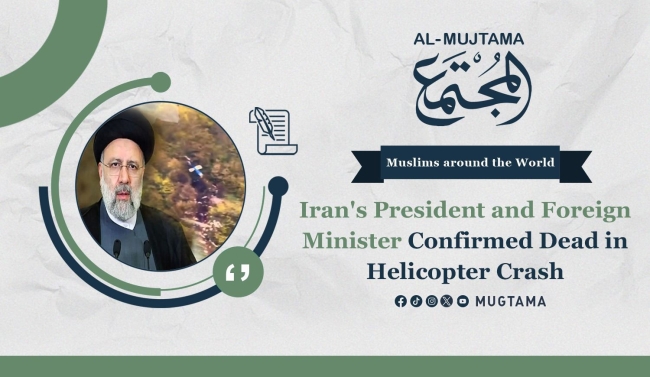Iran's President and Foreign Minister Confirmed Dead in Helicopter Crash
Iran's conservative President Ebrahim Raisi and his foreign minister died in a helicopter crash in Iran's isolated northwest on Sunday, raising new concerns as the country's strict religious leadership manages growing tensions in the region and unrest at home.
The passing of two of Iran's top political leaders occurred as the nation faces major economic and political challenges, while tensions with Israel escalate to a critical point.
Footage from a drone captured by the Red Crescent and shown on Iranian state media revealed the crash scene of the helicopter on a steep forested hillside, with only a blue and white tail remaining of the aircraft.
The crash on Sunday happened while Raisi, aged 63, and Foreign Minister Hossein Amir-Abdollahian were coming back from an event celebrating the inauguration of a dam at Iran's border with Azerbaijan, as stated by state media.
On the ship were three crew members, the governor of Eastern Azerbaijan province, an imam, Raisi's head of security chief, and a bodyguard, as reported by IRGC-controlled media outlet Sepah.
The collision led to a search-and-rescue mission that lasted for hours, with support from the European Union and Turkey, among others. However, the thick fog and dropping temperatures made it challenging for emergency teams.
The passing of Raisi occurs during a delicate period for Tehran internally and after seven months of Israel's conflict with Hamas in Gaza, causing tensions to escalate in the Middle East and revealing the ongoing covert battle between Israel and Iran.
Iran conducted a never-before-seen drone and missile strike on Israel last month, marking its initial direct assault on the country, following an apparent Israeli airstrike on Iran's consulate in Damascus.
In recent years, Iran's hardline leadership under Raisi has experienced considerable difficulties, as it has been disrupted by protests led by young people against clerical authority and harsh economic circumstances. Officials in Iran.


